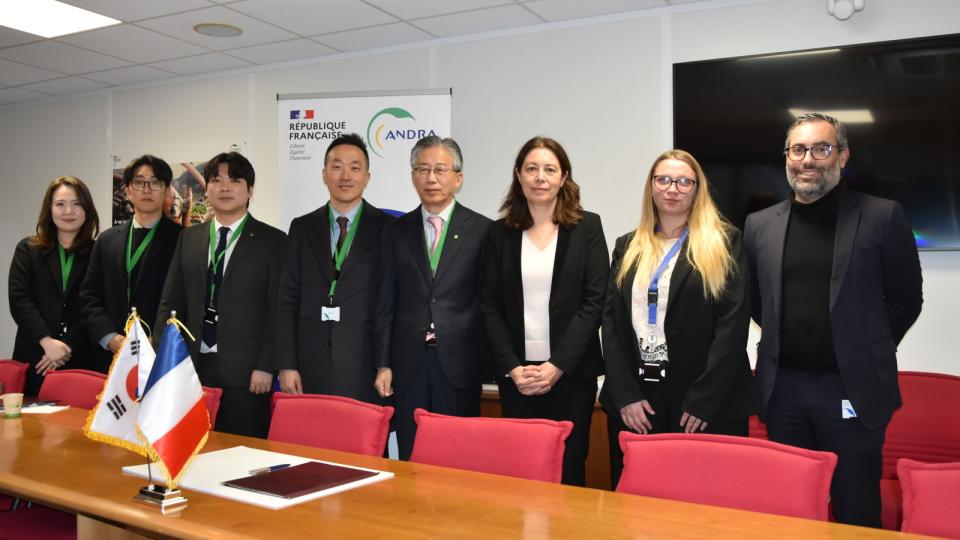Andra and KORAD Renew Their Cooperation
On 19 November, at Andra’s headquarters in Châtenay-Malabry, Andra and the Korea Radioactive Waste Agency (KORAD) renewed their Memorandum of Understanding (MoU), reinforcing their long-standing cooperation on the safe management of radioactive waste.
The document was signed by Lydie Evrard, CEO of Andra, and Sungdon Cho, CEO of KORAD. It formalises the continuation of technical exchanges between the two agencies and reaffirms their shared commitment to maintaining a structured dialogue. The cooperation will further focus on several common areas of interest:
- surface disposal
- deep geological disposal
- communication and stakeholder engagement
This renewed MoU builds on a long-term relationship initiated several years ago, which has already enabled extensive exchanges of experience on radioactive waste management practices.
Following the signing ceremony, the Korean delegation visited Andra’s facilities, including the Underground Research Laboratory in Meuse/Haute-Marne, to observe France’s approach to radioactive waste management directly on site.
A second MoU with iKSNF
In addition to the agreement with KORAD, Andra also maintains a Memorandum of Understanding with iKSNF, the Korean organisation responsible for research and development on spent fuel safety and long-term management solutions, particularly regarding deep geological disposal.

Radioactive waste management in South Korea
South Korean low- and intermediate-level waste is managed at the WLDC (Wolseong Low and Intermediate Level Radioactive Waste Disposal Centre). The facility includes both a surface repository, inspired by Andra’s Centre de stockage de l’Aube (CSA) in the East of France, and a disposal structurelocated 150 to 200 metres underground.
South Korea has been exploring a deep geological repository for high-level waste since the 1980s. The country built its own Underground Research Laboratory KURT (Kaeri Underground Research Tunnel) in 2006, and is planning to select a site for a future deep geological repository by 2035. Furthermore, in 2025, South Korea adopted legislation on high-level waste stipulating that a final disposal facility must be operational by 2060.

